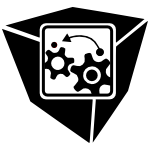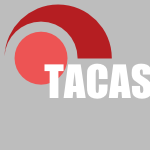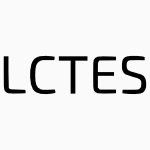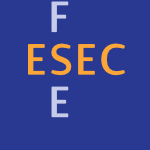262 papers:
 WICSA-2015-NaabBLHEMCK #architecture #case study #design #ecosystem #experience #mobile #prototype #scalability #why
WICSA-2015-NaabBLHEMCK #architecture #case study #design #ecosystem #experience #mobile #prototype #scalability #why- Why Data Needs more Attention in Architecture Design — Experiences from Prototyping a Large-Scale Mobile App Ecosystem (MN, SB, TL, SH, AE, DM, RC, FK), pp. 75–84.
 PODS-2015-CateCST #ontology #using
PODS-2015-CateCST #ontology #using- High-Level Why-Not Explanations using Ontologies (BtC, CC, ES, WCT), pp. 31–43.
 SIGMOD-2015-CSKZYRPAKDRD #big data #industrial #what #why
SIGMOD-2015-CSKZYRPAKDRD #big data #industrial #what #why- Why Big Data Industrial Systems Need Rules and What We Can Do About It (PSGC, CS, KGK, HZ, FY, NR, SP, EA, GK, RD, VR, AD), pp. 265–276.
 VLDB-2015-BidoitHT #named
VLDB-2015-BidoitHT #named- EFQ: Why-Not Answer Polynomials in Action (NB, MH, KT), pp. 1980–1991.
 VLDB-2015-GaoL0ZZ #query
VLDB-2015-GaoL0ZZ #query- Answering Why-not Questions on Reverse Top-k Queries (YG, QL, GC, BZ, LZ), pp. 738–749.
 ICSME-2015-CodobanRDB #case study #developer #how #lens #why
ICSME-2015-CodobanRDB #case study #developer #how #lens #why- Software history under the lens: A study on why and how developers examine it (MC, SSR, DD, BB), pp. 1–10.
 ICSME-2015-NittaM #abstraction #why
ICSME-2015-NittaM #abstraction #why- Delta extraction: An abstraction technique to comprehend why two objects could be related (NN, TM), pp. 61–70.
 ICSME-2015-VendomeVBPGP #developer #why
ICSME-2015-VendomeVBPGP #developer #why- When and why developers adopt and change software licenses (CV, MLV, GB, MDP, DMG, DP), pp. 31–40.
 MSR-2015-LinW #fine-grained #why
MSR-2015-LinW #fine-grained #why- Why Power Laws? An Explanation from Fine-Grained Code Changes (ZL, JW), pp. 68–75.
 MSR-2015-SlagWB #stack overflow #why
MSR-2015-SlagWB #stack overflow #why- One-Day Flies on StackOverflow — Why the Vast Majority of StackOverflow Users Only Posts Once (RS, MdW, AB), pp. 458–461.
 SANER-2015-AmmerlaanVZ #refactoring #why
SANER-2015-AmmerlaanVZ #refactoring #why- Old habits die hard: Why refactoring for understandability does not give immediate benefits (EA, WV, AZ), pp. 504–507.
 SANER-2015-Mirakhorli #architecture #how #question #re-engineering #what #why
SANER-2015-Mirakhorli #architecture #how #question #re-engineering #what #why- Software architecture reconstruction: Why? What? How? (MM), p. 595.
 CHI-2015-CramerJ #communication #question #what #why
CHI-2015-CramerJ #communication #question #what #why- Couples’ Communication Channels: What, When & Why? (HC, MLJ), pp. 709–712.
 CHI-2015-GanglbauerFG #what #why
CHI-2015-GanglbauerFG #what #why- Why and what did we throw out?: Probing on Reflection through the Food Waste Diary (EG, GF, FG), pp. 1105–1114.
 CHI-2015-ZhangAK #how #question #what #why
CHI-2015-ZhangAK #how #question #what #why- Mailing Lists: Why Are They Still Here, What’s Wrong With Them, and How Can We Fix Them? (AXZ, MSA, DRK), pp. 4009–4018.
 CSCW-2015-MatthiesenB #development #framework #legacy #perspective #why
CSCW-2015-MatthiesenB #development #framework #legacy #perspective #why- Why Replacing Legacy Systems Is So Hard in Global Software Development: An Information Infrastructure Perspective (SM, PB), pp. 876–890.
 HCI-UC-2015-Obwegeser #development #matter #why
HCI-UC-2015-Obwegeser #development #matter #why- Entrepreneurial IS Development: Why Techniques Matter and Methods Don’t (NO), pp. 218–225.
 SCSM-2015-MillsF #effectiveness #framework #how #why
SCSM-2015-MillsF #effectiveness #framework #how #why- A Computational Study of How and Why reddit.com was an Effective Platform in the Campaign Against SOPA (RM, AF), pp. 229–241.
 KDD-2015-RongCM #identification #modelling #social #why
KDD-2015-RongCM #identification #modelling #social #why- Why It Happened: Identifying and Modeling the Reasons of the Happening of Social Events (YR, HC, ZM), pp. 1015–1024.
 ESEC-FSE-2015-BellerGPZ #developer #how #ide #why
ESEC-FSE-2015-BellerGPZ #developer #how #ide #why- When, how, and why developers (do not) test in their IDEs (MB, GG, AP, AZ), pp. 179–190.
 ICSE-v1-2015-LavalleeR #case study #developer #quality #why
ICSE-v1-2015-LavalleeR #case study #developer #quality #why- Why Good Developers Write Bad Code: An Observational Case Study of the Impacts of Organizational Factors on Software Quality (ML, PNR), pp. 677–687.
 ICSE-v1-2015-TufanoPBOPLP #smell #why
ICSE-v1-2015-TufanoPBOPLP #smell #why- When and Why Your Code Starts to Smell Bad (MT, FP, GB, RO, MDP, ADL, DP), pp. 403–414.
 HT-2014-TanakaTT #classification #twitter #why
HT-2014-TanakaTT #classification #twitter #why- Why you follow: a classification scheme for twitter follow links (AT, HT, KT), pp. 324–326.
 VLDB-2014-AlucOD #database #design #matter #rdf #why
VLDB-2014-AlucOD #database #design #matter #rdf #why- Workload Matters: Why RDF Databases Need a New Design (GA, MTÖ, KD), pp. 837–840.
 ITiCSE-2014-BainB #programming #question #why
ITiCSE-2014-BainB #programming #question #why- Why is programming so hard to learn? (GB, IB), p. 356.
 ICSME-2014-KerzaziKA #automation #empirical #why
ICSME-2014-KerzaziKA #automation #empirical #why- Why Do Automated Builds Break? An Empirical Study (NK, FK, BA), pp. 41–50.
 SCAM-2014-LozanoNJ #why
SCAM-2014-LozanoNJ #why- Explaining Why Methods Change Together (AL, CN, VJ), pp. 185–194.
 ICALP-v1-2014-IaconoO #why
ICALP-v1-2014-IaconoO #why- Why Some Heaps Support Constant-Amortized-Time Decrease-Key Operations, and Others Do Not (JI, ÖÖ), pp. 637–649.
 CHI-2014-BensonK #how #web #what #why
CHI-2014-BensonK #how #web #what #why- End-users publishing structured information on the web: an observational study of what, why, and how (EB, DRK), pp. 1265–1274.
 CHI-2014-Schoenebeck #how #social #social media #twitter #why
CHI-2014-Schoenebeck #how #social #social media #twitter #why- Giving up Twitter for Lent: how and why we take breaks from social media (SYS), pp. 773–782.
 CHI-2014-ShayIRC #case study #experience #quote #why
CHI-2014-ShayIRC #case study #experience #quote #why- “My religious aunt asked why i was trying to sell her viagra”: experiences with account hijacking (RS, II, RWR, SC), pp. 2657–2666.
 CSCW-2014-XiaoWM #development #security #social #tool support #why
CSCW-2014-XiaoWM #development #security #social #tool support #why- Social influences on secure development tool adoption: why security tools spread (SX, JW, ERMH), pp. 1095–1106.
 HILT-2014-BaggeH #algebra #api #specification #why
HILT-2014-BaggeH #algebra #api #specification #why- Specification of generic APIs, or: why algebraic may be better than pre/post (AHB, MH), pp. 71–80.
 ICEIS-v1-2014-Dietz #enterprise #why
ICEIS-v1-2014-Dietz #enterprise #why- Why ERP Systems Will Keep Failing (JLGD), p. IX.
 KDD-2014-BarbieriBM #predict #why
KDD-2014-BarbieriBM #predict #why- Who to follow and why: link prediction with explanations (NB, FB, GM), pp. 1266–1275.
 VLDB-2013-Bress #gpu #hybrid #performance #query #why
VLDB-2013-Bress #gpu #hybrid #performance #query #why- Why it is time for a HyPE: A Hybrid Query Processing Engine for Efficient GPU Coprocessing in DBMS (SB), pp. 1398–1403.
 ITiCSE-2013-KnoxF #matter #question #why
ITiCSE-2013-KnoxF #matter #question #why- Why does place matter? (DK, SF), pp. 171–176.
 ITiCSE-2013-Kurkovsky #mobile #question #why
ITiCSE-2013-Kurkovsky #mobile #question #why- Mobile computing and robotics in one course: why not? (SK), pp. 64–69.
 ESOP-2013-FilliatreP #named #proving #source code #why
ESOP-2013-FilliatreP #named #proving #source code #why- Why3 — Where Programs Meet Provers (JCF, AP), pp. 125–128.
 MSR-2013-AllamanisS #stack overflow #topic #what #why
MSR-2013-AllamanisS #stack overflow #topic #what #why- Why, when, and what: analyzing stack overflow questions by topic, type, and code (MA, CAS), pp. 53–56.
 MSR-2013-ShokripourAKZ #debugging #recommendation #why
MSR-2013-ShokripourAKZ #debugging #recommendation #why- Why so complicated? simple term filtering and weighting for location-based bug report assignment recommendation (RS, JA, ZMK, SZ), pp. 2–11.
 CHI-2013-KangBK #design #internet #people #policy #why
CHI-2013-KangBK #design #internet #people #policy #why- Why do people seek anonymity on the internet?: informing policy and design (RK, SB, SBK), pp. 2657–2666.
 CHI-2013-MarcuTCGRSDK #comprehension #education #why
CHI-2013-MarcuTCGRSDK #comprehension #education #why- Why do they still use paper?: understanding data collection and use in Autism education (GM, KT, QC, JG, GR, KJS, AKD, SBK), pp. 3177–3186.
 CHI-2013-RauARR #design #interactive #learning #why
CHI-2013-RauARR #design #interactive #learning #why- Why interactive learning environments can have it all: resolving design conflicts between competing goals (MAR, VA, NR, SR), pp. 109–118.
 CSCW-2013-BuhlerNH #chat #how #video #why
CSCW-2013-BuhlerNH #chat #how #video #why- How and why teenagers use video chat (TB, CN, SH), pp. 759–768.
 CSCW-2013-JacksonSB #policy #why
CSCW-2013-JacksonSB #policy #why- Why CSCW needs science policy (and vice versa) (SJJ, SBS, AGB), pp. 1113–1124.
 DUXU-WM-2013-Lopez-OrnelasAZ #interface #question #web #why
DUXU-WM-2013-Lopez-OrnelasAZ #interface #question #web #why- Geospatial Web Interfaces, Why Are They So “Complicated”? (ÉLO, RAM, JSZH), pp. 231–237.
 KDD-2013-FuLLFHS #feedback #mobile #people #why
KDD-2013-FuLLFHS #feedback #mobile #people #why- Why people hate your app: making sense of user feedback in a mobile app store (BF, JL, LL, CF, JIH, NMS), pp. 1276–1284.
 SEKE-2013-BurnayJF #matter #problem #requirements #what #why
SEKE-2013-BurnayJF #matter #problem #requirements #what #why- Context Factors: What they are and why they matter for Requirements Problems (CB, IJ, SF), pp. 30–35.
 ECOOP-2013-TasharofiDJ #concurrent #developer #modelling #question #scala #why
ECOOP-2013-TasharofiDJ #concurrent #developer #modelling #question #scala #why- Why Do Scala Developers Mix the Actor Model with other Concurrency Models? (ST, PD, REJ), pp. 302–326.
 Onward-2013-Aldrich #power of #why
Onward-2013-Aldrich #power of #why- The power of interoperability: why objects are inevitable (JA), pp. 101–116.
 RE-2013-VogelsanagF #challenge #dependence #empirical #requirements #why
RE-2013-VogelsanagF #challenge #dependence #empirical #requirements #why- Why feature dependencies challenge the requirements engineering of automotive systems: An empirical study (AV, SF), pp. 267–272.
 ICSE-2013-JohnsonSMB #debugging #developer #question #static analysis #tool support #why
ICSE-2013-JohnsonSMB #debugging #developer #question #static analysis #tool support #why- Why don’t software developers use static analysis tools to find bugs? (BJ, YS, ERMH, RWB), pp. 672–681.
 ICSE-2013-RahmanD #how #metric #process #why
ICSE-2013-RahmanD #how #metric #process #why- How, and why, process metrics are better (FR, PTD), pp. 432–441.
 ICSE-2013-RastkarM #question #why
ICSE-2013-RastkarM #question #why- Why did this code change? (SR, GCM), pp. 1193–1196.
 ASPLOS-2013-CheckowayS #api #why
ASPLOS-2013-CheckowayS #api #why- Iago attacks: why the system call API is a bad untrusted RPC interface (SC, HS), pp. 253–264.
 ASPLOS-2013-OliveiraFDHS #why
ASPLOS-2013-OliveiraFDHS #why- Why you should care about quantile regression (ABdO, SF, AD, MH, PFS), pp. 207–218.
 LICS-2013-Fontaine #consistency #query #question #why
LICS-2013-Fontaine #consistency #query #question #why- Why is it Hard to Obtain a Dichotomy for Consistent Query Answering? (GF), pp. 550–559.
 SAT-2013-Clarke #why
SAT-2013-Clarke #why- Turing’s Computable Real Numbers and Why They Are Still Important Today (EMC), p. 18.
 CSMR-2012-TollO #game studies #question #why
CSMR-2012-TollO #game studies #question #why- Why is Unit-testing in Computer Games Difficult? (DT, TO), pp. 373–378.
 ICSM-2012-ZhangPXZ #developer #what #why
ICSM-2012-ZhangPXZ #developer #what #why- Cloning practices: Why developers clone and what can be changed (GZ, XP, ZX, WZ), pp. 285–294.
 ICSM-2012-ZouG #algorithm #automation #case study #detection #industrial #what #why
ICSM-2012-ZouG #algorithm #automation #case study #detection #industrial #what #why- An industrial case study of Coman’s automated task detection algorithm: What Worked, What Didn’t, and Why (LZ, MWG), pp. 6–14.
 MSR-2012-ArthoSCTZ #question #why
MSR-2012-ArthoSCTZ #question #why- Why do software packages conflict? (CA, KS, RDC, RT, SZ), pp. 141–150.
 CHI-2012-LeonUSWBC #behaviour #evaluation #online #tool support #usability #why
CHI-2012-LeonUSWBC #behaviour #evaluation #online #tool support #usability #why- Why Johnny can’t opt out: a usability evaluation of tools to limit online behavioral advertising (PGL, BU, RS, YW, RB, LFC), pp. 589–598.
 CSCW-2012-DongF #communication #why
CSCW-2012-DongF #communication #why- One piece at a time: why video-based communication is better for negotiation and conflict resolution (WD, WTF), pp. 167–176.
 HILT-2012-Leino12a #proving #using #verification #why
HILT-2012-Leino12a #proving #using #verification #why- Program proving using intermediate verification languages (IVLs) like boogie and why3 (KRML), pp. 25–26.
 CIKM-2012-BlancoCLPS #exclamation #recommendation #why
CIKM-2012-BlancoCLPS #exclamation #recommendation #why- You should read this! let me explain you why: explaining news recommendations to users (RB, DC, CL, RP, FS), pp. 1995–1999.
 REFSQ-2012-Lauesen #why
REFSQ-2012-Lauesen #why- Why the Electronic Land Registry Failed (SL), pp. 1–15.
 REFSQ-2012-MahauxMH #how #people #requirements #why
REFSQ-2012-MahauxMH #how #people #requirements #why- Choose Your Creativity: Why and How Creativity in Requirements Engineering Means Different Things to Different People (MM, AM, PH), pp. 101–116.
 ICSE-2012-Johnson #case study #question #static analysis #tool support #using #why
ICSE-2012-Johnson #case study #question #static analysis #tool support #using #why- A study on improving static analysis tools: Why are we not using them? (BJ), pp. 1607–1609.
 ISMM-2012-OCallahan #memory management #question #using #web #why
ISMM-2012-OCallahan #memory management #question #using #web #why- Why is your web browser using so much memory? (RO), pp. 1–2.
 ICLP-2012-BaralVL #how #knowledge base #why
ICLP-2012-BaralVL #how #knowledge base #why- Answering Why and How questions with respect to a frame-based knowledge base: a preliminary report (CB, NHV, SL), pp. 26–36.
 WICSA-2011-Smet #architecture #health #question #why
WICSA-2011-Smet #architecture #health #question #why- The Dutch Nationwide Electronic Health Record: Why the Centralised Services Architecture? (KdS), pp. 181–186.
 DAC-2011-Heiser #embedded #question #why
DAC-2011-Heiser #embedded #question #why- Virtualizing embedded systems: why bother? (GH), pp. 901–905.
 DAC-2011-Hu #how #why
DAC-2011-Hu #how #why- New sub-20nm transistors: why and how (CH), pp. 460–463.
 CHI-2011-ChettyHBOSG #internet #network #why
CHI-2011-ChettyHBOSG #internet #network #why- Why is my internet slow?: making network speeds visible (MC, DH, AB, UO, BS, REG), pp. 1889–1898.
 CHI-2011-DabbishMG #self #why
CHI-2011-DabbishMG #self #why- Why do i keep interrupting myself?: environment, habit and self-interruption (LD, GM, VMG), pp. 3127–3130.
 CHI-2011-LindqvistCWHZ #people #why
CHI-2011-LindqvistCWHZ #people #why- I’m the mayor of my house: examining why people use foursquare — a social-driven location sharing application (JL, JC, JW, JIH, JZ), pp. 2409–2418.
 CSCW-2011-BalakrishnanKCZ #integration #matter #research #what #why
CSCW-2011-BalakrishnanKCZ #integration #matter #research #what #why- Research team integration: what it is and why it matters (ADB, SBK, JNC, RZ), pp. 523–532.
 DUXU-v1-2011-Innes #design #enterprise #why
DUXU-v1-2011-Innes #design #enterprise #why- Why Enterprises Can’t Innovate: Helping Companies Learn Design Thinking (JI), pp. 442–448.
 DUXU-v1-2011-Pratschke #human-computer #image #matter #visual notation #why
DUXU-v1-2011-Pratschke #human-computer #image #matter #visual notation #why- Why History Matters: Visual Innovation and the Role of Image Theory in HCI (MP), pp. 277–284.
 DUXU-v1-2011-SirotkinM #difference #experience #in the cloud #user interface #why
DUXU-v1-2011-SirotkinM #difference #experience #in the cloud #user interface #why- The New Experience for Business: Why User Experience Is the Differentiation Strategy in the Cloud Context (AS, BM), pp. 491–499.
 HCI-UA-2011-AbrahamJ #comprehension #perspective #why
HCI-UA-2011-AbrahamJ #comprehension #perspective #why- An Enriched Understanding of Why the Environment and Individual Characteristics Are Important in Understanding Technology Utilization in Healthcare: An Evolutionary Psychology Perspective (CA, IAJ), pp. 141–150.
 HCI-UA-2011-Loiacono-MelloDTP #case study #generative #why
HCI-UA-2011-Loiacono-MelloDTP #case study #generative #why- Why Virtual Job Recruitment Is Not Well Accepted by Generation Y? — A Case Study on Second Life (ETLM, SD, BT, OVP), pp. 245–254.
 SIGAda-2011-Carlisle #ada #why
SIGAda-2011-Carlisle #ada #why- Why i came back to Ada (MCC), pp. 37–38.
 CIKM-2011-LangeN #metric #similarity #why
CIKM-2011-LangeN #metric #similarity #why- Frequency-aware similarity measures: why Arnold Schwarzenegger is always a duplicate (DL, FN), pp. 243–248.
 CIKM-2011-YangZKL #how #learning #question #why
CIKM-2011-YangZKL #how #learning #question #why- Can irrelevant data help semi-supervised learning, why and how? (HY, SZ, IK, MRL), pp. 937–946.
 ECIR-2011-VerberneBK #web
ECIR-2011-VerberneBK #web- Bringing Why-QA to Web Search (SV, LB, WK), pp. 491–496.
 SIGIR-2011-GuoWZAD #comprehension #predict #why
SIGIR-2011-GuoWZAD #comprehension #predict #why- Why searchers switch: understanding and predicting engine switching rationales (QG, RWW, YZ, BA, STD), pp. 335–344.
 OOPSLA-2011-YangBFSM #matter #why
OOPSLA-2011-YangBFSM #matter #why- Why nothing matters: the impact of zeroing (XY, SMB, DF, JBS, KSM), pp. 307–324.
 ICSE-2011-StreitP #how #quality #why
ICSE-2011-StreitP #how #quality #why- Why software quality improvement fails: (and how to succeed nevertheless) (JS, MP), pp. 726–735.
 CGO-2011-Leroy #compilation #how #question #verification #why
CGO-2011-Leroy #compilation #how #question #verification #why- Formally verifying a compiler: Why? How? How far? (XL).
 ICST-2011-Sun #debugging #question #why
ICST-2011-Sun #debugging #question #why- Why are Bug Reports Invalid? (JS), pp. 407–410.
 LICS-2011-Atserias #finite #tutorial
LICS-2011-Atserias #finite #tutorial- A Why-on-Earth Tutorial on Finite Model Theory (AA), p. 3.
 DATE-2010-Horowitz #design #why
DATE-2010-Horowitz #design #why- Why design must change: Rethinking digital design (MH), p. 791.
 SIGMOD-2010-TranC #how
SIGMOD-2010-TranC #how- How to ConQueR why-not questions (QTT, CYC), pp. 15–26.
 CSEET-2010-Thompson #effectiveness #industrial #re-engineering #why
CSEET-2010-Thompson #effectiveness #industrial #re-engineering #why- Why Better Industrial/Academic Links Are Needed If There is to Be an Effective Software Engineering Workforce (JBT), pp. 105–112.
 FASE-2010-Harman #optimisation #why
FASE-2010-Harman #optimisation #why- Why the Virtual Nature of Software Makes It Ideal for Search Based Optimization (MH), pp. 1–12.
 SCAM-2010-Harman #analysis #source code #why
SCAM-2010-Harman #analysis #source code #why- Why Source Code Analysis and Manipulation Will Always be Important (MH), pp. 7–19.
 SAS-2010-Lesens #question #static analysis #using #why
SAS-2010-Lesens #question #static analysis #using #why- Using Static Analysis in Space: Why Doing so? (DL), pp. 51–70.
 CHI-2010-AhlstromCGI #design #modelling #why
CHI-2010-AhlstromCGI #design #modelling #why- Why it’s quick to be square: modelling new and existing hierarchical menu designs (DA, AC, CG, PI), pp. 1371–1380.
 CHI-2010-DearmanT #exclamation #why
CHI-2010-DearmanT #exclamation #why- Why users of yahoo!: answers do not answer questions (DD, KNT), pp. 329–332.
 CHI-2010-HsiehKH #how #why
CHI-2010-HsiehKH #how #why- Why pay?: exploring how financial incentives are used for question & answer (GH, REK, SEH), pp. 305–314.
 CHI-2010-MorrisTP #behaviour #bibliography #network #people #social #what #why
CHI-2010-MorrisTP #behaviour #bibliography #network #people #social #what #why- What do people ask their social networks, and why?: a survey study of status message q&a behavior (MRM, JT, KP), pp. 1739–1748.
 CSCW-2010-BardramH #case study #coordination #why
CSCW-2010-BardramH #case study #coordination #why- Why the plan doesn’t hold: a study of situated planning, articulation and coordination work in a surgical ward (JEB, TRH), pp. 331–340.
 SOFTVIS-2010-Booch #developer #diagrams #question #why
SOFTVIS-2010-Booch #developer #diagrams #question #why- Why don’t developers draw diagrams? (GB), pp. 3–4.
 ICEIS-HCI-2010-PereiraBS #question #social #why
ICEIS-HCI-2010-PereiraBS #question #social #why- A Framework-informed Discussion on Social Software — Why Some Social Software Fail and Others do Not? (RP, MCCB, SRPdS), pp. 149–154.
 ECIR-2010-AnderkaSP #bound #similarity #why
ECIR-2010-AnderkaSP #bound #similarity #why- Cross-Language High Similarity Search: Why No Sub-linear Time Bound Can Be Expected (MA, BS, MP), pp. 640–644.
 KDD-2010-AttenbergP #classification #learning #modelling #why
KDD-2010-AttenbergP #classification #learning #modelling #why- Why label when you can search?: alternatives to active learning for applying human resources to build classification models under extreme class imbalance (JA, FJP), pp. 423–432.
 RE-2010-LiuLP #bibliography #requirements #why
RE-2010-LiuLP #bibliography #requirements #why- Why Requirements Engineering Fails: A Survey Report from China (LL, TL, FP), pp. 317–322.
 LDTA-2009-BaggeH10 #concept #matter #why
LDTA-2009-BaggeH10 #concept #matter #why- Interfacing Concepts: Why Declaration Style Shouldn’t Matter (AHB, MH), pp. 37–50.
 SIGMOD-2009-ChapmanJ #question #why
SIGMOD-2009-ChapmanJ #question #why- Why not? (AC, HVJ), pp. 523–534.
 SIGMOD-2009-DasguptaZDC #database #how #privacy #question #why
SIGMOD-2009-DasguptaZDC #database #how #privacy #question #why- Privacy preservation of aggregates in hidden databases: why and how? (AD, NZ, GD, SC), pp. 153–164.
 ITiCSE-2009-DeePBP #case study #experience #why #women
ITiCSE-2009-DeePBP #case study #experience #why #women- Why are we still here?: experiences of successful women in computing (HMD, KEP, RDB, RP), pp. 233–237.
 CHI-2009-HerringCKB #comprehension #design #exclamation #how #why
CHI-2009-HerringCKB #comprehension #design #exclamation #how #why- Getting inspired!: understanding how and why examples are used in creative design practice (SRH, CCC, JK, BPB), pp. 87–96.
 CHI-2009-LimDA #why
CHI-2009-LimDA #why- Why and why not explanations improve the intelligibility of context-aware intelligent systems (BYL, AKD, DA), pp. 2119–2128.
 CHI-2009-NylanderLB #internet #people #why
CHI-2009-NylanderLB #internet #people #why- At home and with computer access: why and where people use cell phones to access the internet (SN, TL, AB), pp. 1639–1642.
 CHI-2009-OdomPSB #comprehension #design #interactive #why
CHI-2009-OdomPSB #comprehension #design #interactive #why- Understanding why we preserve some things and discard others in the context of interaction design (WO, JP, ES, EB), pp. 1053–1062.
 CHI-2009-YataniCJT #comprehension #development #diagrams #how #open source #why
CHI-2009-YataniCJT #comprehension #development #diagrams #how #open source #why- Understanding how and why open source contributors use diagrams in the development of Ubuntu (KY, EC, CJ, KNT), pp. 995–1004.
 CHI-2009-ZhouAZ #maintenance #why
CHI-2009-ZhouAZ #maintenance #why- I just don’t know why it’s gone: maintaining informal information use in inpatient care (XZ, MSA, KZ), pp. 2061–2070.
 HCD-2009-KohNTTWH #analysis #why
HCD-2009-KohNTTWH #analysis #why- Why Taking Medicine Is a Chore — An Analysis of Routine and Contextual Factors in the Home (WKK, JN, OYT, ZT, AHYW, MGH), pp. 452–461.
 OCSC-2009-BrandtzaegH #network #people #social #why
OCSC-2009-BrandtzaegH #network #people #social #why- Why People Use Social Networking Sites (PBB, JH), pp. 143–152.
 ECOOP-2009-Jones #haskell #what #why
ECOOP-2009-Jones #haskell #what #why- Classes, Jim, But Not as We Know Them — Type Classes in Haskell: What, Why, and Whither (SLPJ), p. 1.
 DAC-2008-Haensch #3d #integration #question #why
DAC-2008-Haensch #3d #integration #question #why- Why should we do 3D integration? (WH), pp. 674–675.
 CSEET-2008-DeKoenigsberg #how #open source #student #why
CSEET-2008-DeKoenigsberg #how #open source #student #why- How Successful Open Source Projects Work, and How and Why to Introduce Students to the Open Source World (GD), pp. 274–276.
 ITiCSE-2008-Hall #web #what #why
ITiCSE-2008-Hall #web #what #why- What is web science and why is it important to CSE (WH), pp. 1–2.
 CSCW-2008-PriedhorskyT #how #what #why
CSCW-2008-PriedhorskyT #how #what #why- The computational geowiki: what, why, and how (RP, LGT), pp. 267–276.
 ICEIS-DISI-2008-PennesiHRWS #what #why
ICEIS-DISI-2008-PennesiHRWS #what #why- WWW++ — Adding Why to What, When and Where (PP, MH, CR, CYW, SS), pp. 304–309.
 ICEIS-ISAS2-2008-Nobre #design #social #why
ICEIS-ISAS2-2008-Nobre #design #social #why- Why Heidegger? — Critical Insights for IS Design from Pragmatism and from Social Semiotics (ÂLN), pp. 435–441.
 ICSE-2008-KoM #behaviour #debugging #why
ICSE-2008-KoM #behaviour #debugging #why- Debugging reinvented: asking and answering why and why not questions about program behavior (AJK, BAM), pp. 301–310.
 ICSE-2008-NiggemannS #modelling #why
ICSE-2008-NiggemannS #modelling #why- Models for model’s sake: why explicit system models are also an end to themselves (ON, JS), pp. 561–570.
 HT-2007-schraefel #question #semantics #web #what #why
HT-2007-schraefel #question #semantics #web #what #why- What is an analogue for the semantic web and why is having one important? (MMCS), pp. 123–132.
 SIGMOD-2007-GrustRT #off the shelf #why #xpath
SIGMOD-2007-GrustRT #off the shelf #why #xpath- Why off-the-shelf RDBMSs are better at XPath than you might expect (TG, JR, JT), pp. 949–958.
 VLDB-2007-IvesDR #adaptation #how #query #question #what #why
VLDB-2007-IvesDR #adaptation #how #query #question #what #why- Adaptive query processing: Why, How, When, and What Next? (ZGI, AD, VR), pp. 1426–1427.
 VLDB-2007-PossNW #analysis #why
VLDB-2007-PossNW #analysis #why- Why You Should Run TPC-DS: A Workload Analysis (MP, RON, DW), pp. 1138–1149.
 CSEET-2007-WilliamsL #question #why
CSEET-2007-WilliamsL #question #why- Lab Partners: If They’re Good Enough for the Natural Sciences, Why Aren’t They Good Enough for Us? (LW, LL), pp. 72–82.
 CHI-2007-AmesN #mobile #online #why
CHI-2007-AmesN #mobile #online #why- Why we tag: motivations for annotation in mobile and online media (MA, MN), pp. 971–980.
 CHI-2007-CherubiniVDK #developer #how #why
CHI-2007-CherubiniVDK #developer #how #why- Let’s go to the whiteboard: how and why software developers use drawings (MC, GV, RD, AJK), pp. 557–566.
 CHI-2007-KalnikaiteW #memory management #people #why
CHI-2007-KalnikaiteW #memory management #people #why- Software or wetware?: discovering when and why people use digital prosthetic memory (VK, SW), pp. 71–80.
 HCI-IDU-2007-FujimuraSMKSIMOWFT #case study #why
HCI-IDU-2007-FujimuraSMKSIMOWFT #case study #why- Why Does IT Support Enjoyment of Elderly Life? — Case Studies Performed in Japan (KF, HS, TM, KK, KiS, YI, SM, KO, TW, YF, TT), pp. 756–764.
 HCI-IDU-2007-Karjalainen #analysis #why
HCI-IDU-2007-Karjalainen #analysis #why- Why It Is Difficult to Use a Simple Device: An Analysis of a Room Thermostat (SK), pp. 544–548.
 SIGIR-2007-Verberne #retrieval
SIGIR-2007-Verberne #retrieval- Paragraph retrieval for why-question answering (SV), p. 922.
 SIGIR-2007-VerberneBOC
SIGIR-2007-VerberneBOC- Evaluating discourse-based answer extraction for why-question answering (SV, LB, NO, PAC), pp. 735–736.
 SAC-2007-Savoy #topic #why
SAC-2007-Savoy #topic #why- Why do successful search systems fail for some topics (JS), pp. 872–877.
 SPLC-2007-TischerMKG #product line #why
SPLC-2007-TischerMKG #product line #why- Why does it take that long? Establishing Product Lines in the Automotive Domain (CT, AM, MK, LG), pp. 269–274.
 CAV-2007-FilliatreM #deduction #framework #verification #why
CAV-2007-FilliatreM #deduction #framework #verification #why- The Why/Krakatoa/Caduceus Platform for Deductive Program Verification (JCF, CM), pp. 173–177.
 SIGMOD-2006-DeshpandeHR #adaptation #how #query #what #why
SIGMOD-2006-DeshpandeHR #adaptation #how #query #what #why- Adaptive query processing: why, how, when, what next (AD, JMH, VR), pp. 806–807.
 CSEET-2006-Budgen #nondeterminism #why
CSEET-2006-Budgen #nondeterminism #why- Why should they believe us? Determinism, non-determinism and evidence (DB), p. 4.
 TACAS-2006-GurfinkelC #abstraction #question #why
TACAS-2006-GurfinkelC #abstraction #question #why- Why Waste a Perfectly Good Abstraction? (AG, MC), pp. 212–226.
 CHI-2006-DhamijaTH #why
CHI-2006-DhamijaTH #why- Why phishing works (RD, JDT, MAH), pp. 581–590.
 CHI-2006-MyersWKC #user interface #why
CHI-2006-MyersWKC #user interface #why- Answering why and why not questions in user interfaces (BAM, DAW, AJK, DHC), pp. 397–406.
 SIGAda-2006-Taft #ada #exclamation #using #why
SIGAda-2006-Taft #ada #exclamation #using #why- Why you should be using Ada 2005 now! (STT), p. 75.
 CAiSE-2006-HaggmarkA #analysis #logic #principle #why
CAiSE-2006-HaggmarkA #analysis #logic #principle #why- Why Software Engineers Do Not Keep to the Principle of Separating Business Logic from Display: A Method Rationale Analysis (MH, PJÅ), pp. 399–413.
 EDOC-2006-MutschlerBR #empirical #industrial #information management #why
EDOC-2006-MutschlerBR #empirical #industrial #information management #why- Why Process-Orientation is Scarce: An Empirical Study of Process-oriented Information Systems in the Automotive Industry (BM, JB, MR), pp. 433–440.
 SIGIR-2006-TrotmanL06a #query #why
SIGIR-2006-TrotmanL06a #query #why- Why structural hints in queries do not help XML-retrieval (AT, ML), pp. 711–712.
 POPL-2006-McKinna #dependent type #matter #why
POPL-2006-McKinna #dependent type #matter #why- Why dependent types matter (JM), p. 1.
 ICLP-2006-Lam #datalog #question #source code #why
ICLP-2006-Lam #datalog #question #source code #why- Why Use Datalog to Analyze Programs? (MSL), p. 1.
 DATE-2005-MellorWM #uml #why
DATE-2005-MellorWM #uml #why- Why Systems-on-Chip Needs More UML like a Hole in the Head (SJM, JRW, CM), pp. 834–835.
 VLDB-2005-Olstad #database #query #why
VLDB-2005-Olstad #database #query #why- Why Search Engines are Used Increasingly to Offload Queries from Databases (BO), p. 1.
 ITiCSE-2005-BiancoT #process #question #why
ITiCSE-2005-BiancoT #process #question #why- Why are children left out of the CS rethinking process? (GMB, ST), p. 352.
 ITiCSE-2005-Penha-Lopes #open source #question #why
ITiCSE-2005-Penha-Lopes #open source #question #why- Why use an open source e-voting system? (JMPL), p. 412.
 CHI-2005-ConsolvoSMLTP #people #social #what #why
CHI-2005-ConsolvoSMLTP #people #social #what #why- Location disclosure to social relations: why, when, & what people want to share (SC, IES, TM, AL, JT, PP), pp. 81–90.
 CHI-2005-OviattLC #difference #integration #multimodal #question #what #why
CHI-2005-OviattLC #difference #integration #multimodal #question #what #why- Individual differences in multimodal integration patterns: what are they and why do they exist? (SLO, RL, RC), pp. 241–249.
 ICEIS-v5-2005-Murano #effectiveness #feedback #user interface #why
ICEIS-v5-2005-Murano #effectiveness #feedback #user interface #why- Why Anthropomorphic User Interface Feedback can be Effective and Preferred by Users (PM), pp. 12–19.
 ICML-2005-RosellHRP #learning #why
ICML-2005-RosellHRP #learning #why- Why skewing works: learning difficult Boolean functions with greedy tree learners (BR, LH, SR, DP), pp. 728–735.
 SIGIR-2005-BastM #retrieval #why
SIGIR-2005-BastM #retrieval #why- Why spectral retrieval works (HB, DM), pp. 11–18.
 RE-2005-BerryDFGHW #question #requirements #why
RE-2005-BerryDFGHW #question #requirements #why- To do or not to do: If the requirements engineering payoff is so good, why aren’t more companies doing it? (DMB, DD, AF, DCG, RH, AW), p. 447.
 RE-2005-SvetinovicBG #analysis #concept #identification #object-oriented #student #why
RE-2005-SvetinovicBG #analysis #concept #identification #object-oriented #student #why- Concept Identification in Object-Oriented Domain Analysis: Why Some Students Just Don’t Get It (DS, DMB, MWG), pp. 189–198.
 ICSE-2005-Siegel #architecture #design #distributed #modelling #question #why
ICSE-2005-Siegel #architecture #design #distributed #modelling #question #why- Why use the model driven architecture to design and build distributed applications? (JS), p. 37.
 PPoPP-2005-Hanrahan #hardware #performance #question #why
PPoPP-2005-Hanrahan #hardware #performance #question #why- Why is graphics hardware so fast? (PH), p. 1.
 DATE-v1-2004-KretzschmarNM #power management #why
DATE-v1-2004-KretzschmarNM #power management #why- Why Transition Coding for Power Minimization of On-Chip Buses Does Not Work (CK, AKN, DM), pp. 512–517.
 ITiCSE-WGR-2004-LeBlancD #education #why
ITiCSE-WGR-2004-LeBlancD #education #why- Bioinformatics and computing curricula 2001: why computer science is well positioned in a post-genomic world (MDL, BDD), pp. 64–68.
 STOC-2004-Wigderson #question #why
STOC-2004-Wigderson #question #why- Depth through breadth, or why should we attend talks in other areas? (AW), p. 579.
 ICFP-2004-NeergaardM #type system #why
ICFP-2004-NeergaardM #type system #why- Types, potency, and idempotency: why nonlinearity and amnesia make a type system work (PMN, HGM), pp. 138–149.
 KDD-2004-JensenNG #classification #relational #why
KDD-2004-JensenNG #classification #relational #why- Why collective inference improves relational classification (DJ, JN, BG), pp. 593–598.
 KR-2004-Patel-Schneider #owl #question #what #why
KR-2004-Patel-Schneider #owl #question #what #why- What Is OWL (and Why Should I Care)? (PFPS), pp. 735–737.
 SIGIR-2004-Buckley04a #information retrieval #why
SIGIR-2004-Buckley04a #information retrieval #why- Why current IR engines fail (CB), pp. 584–585.
 CAV-2004-Metzner #analysis #model checking #why
CAV-2004-Metzner #analysis #model checking #why- Why Model Checking Can Improve WCET Analysis (AM), pp. 334–347.
 VMCAI-2004-Wilhelm #why
VMCAI-2004-Wilhelm #why- Why AI + ILP Is Good for WCET, but MC Is Not, Nor ILP Alone (RW), pp. 309–322.
 ITiCSE-2003-BarkerG03a #experience #student #why
ITiCSE-2003-BarkerG03a #experience #student #why- Why project courses sometimes widen the experience gap among students (LJB, KGD), p. 258.
 RE-2003-DeraitusM #requirements #why
RE-2003-DeraitusM #requirements #why- Customer Requirements and User Requirements: Why the Discrepancies (MD, AM), p. 279.
 ICSE-2003-Fairbanks #architecture #case study #developer #experience #modelling #why
ICSE-2003-Fairbanks #architecture #case study #developer #experience #modelling #why- Why Can’t They Create Architecture Models Like “Developer X”? An Experience Report (GF), pp. 548–552.
 DAC-2002-SeryBD #question #why
DAC-2002-SeryBD #question #why- Life is CMOS: why chase the life after? (GS, SB, VD), pp. 78–83.
 ITiCSE-2002-HabermanA #recursion #student #why
ITiCSE-2002-HabermanA #recursion #student #why- The case of base cases: why are they so difficult to recognize? student difficulties with recursion (BH, HA), pp. 84–88.
 ICALP-2002-HitchcockL #complexity #strict #why
ICALP-2002-HitchcockL #complexity #strict #why- Why Computational Complexity Requires Stricter Martingales (JMH, JHL), pp. 549–560.
 ICGT-2002-Harel #behaviour #requirements #why
ICGT-2002-Harel #behaviour #requirements #why- Can Behavioral Requirements Be Executed? (And Why Would We Want to Do So?) (DH), pp. 6–7.
 CSCW-2002-BradnerM #distance #matter #persuasion #why
CSCW-2002-BradnerM #distance #matter #persuasion #why- Why distance matters: effects on cooperation, persuasion and deception (EB, GM), pp. 226–235.
 ICPR-v2-2002-AltyncayD #classification #multi #normalisation #problem #question #why
ICPR-v2-2002-AltyncayD #classification #multi #normalisation #problem #question #why- Why Does Output Normalization Create Problems in Multiple Classifier Systems? (HA, MD), pp. 775–778.
 SEKE-2002-JorgensenM #development #how #predict #question #why
SEKE-2002-JorgensenM #development #how #predict #question #why- Combination of software development effort prediction intervals: why, when and how? (MJ, KM), pp. 425–428.
 LDTA-2002-Consel #domain-specific language #how #what #why
LDTA-2002-Consel #domain-specific language #how #what #why- Domain-Specific Languages: What, Why, How (CC), p. 1.
 LCTES-SCOPES-2002-Fettweis #exclamation #named #why
LCTES-SCOPES-2002-Fettweis #exclamation #named #why- DSPs: why don’t they just go away! (GF), p. 93.
 WICSA-2001-BaragryR #architecture #why
WICSA-2001-BaragryR #architecture #why- Why We Need A Different View of Software Architecture (JB, KR), p. 125–?.
 ICDAR-2001-HuKLWN #why
ICDAR-2001-HuKLWN #why- Why Table Ground-Truthing is Hard (JH, RSK, DPL, GTW, GN), pp. 129–133.
 ITiCSE-2001-Kaczmarczyk #assessment #distance #education #student #why
ITiCSE-2001-Kaczmarczyk #assessment #distance #education #student #why- Accreditation and student assessment in distance education: why we all need to pay attention (LCK), pp. 113–116.
 SAS-2001-Schneider #security #what #why
SAS-2001-Schneider #security #what #why- Language-Based Security: What’s Needed and Why (FBS), p. 374.
 STOC-2001-SpielmanT #algorithm #analysis #polynomial #why
STOC-2001-SpielmanT #algorithm #analysis #polynomial #why- Smoothed analysis of algorithms: why the simplex algorithm usually takes polynomial time (DAS, SHT), pp. 296–305.
 ICALP-2001-Nielsen #modelling #partial order #question #why
ICALP-2001-Nielsen #modelling #partial order #question #why- Modelling with Partial Orders — Why and Why Not? (MN), pp. 61–63.
 CAiSE-2001-PerssonS #case study #enterprise #modelling #why
CAiSE-2001-PerssonS #case study #enterprise #modelling #why- Why Enterprise Modelling? An Explorative Study into Current Practice (AP, JS), pp. 465–468.
 SIGIR-2001-TurpinH #why
SIGIR-2001-TurpinH #why- Why Batch and User Evaluations Do Not Give the Same Results (AT, WRH), pp. 225–231.
 IFM-2000-Schulte #formal method #question #why
IFM-2000-Schulte #formal method #question #why- Why Doesn’t Anyone Use Formal Methods? (WS), pp. 297–298.
 CHI-2000-EspinosaCRKSL #tool support #why
CHI-2000-EspinosaCRKSL #tool support #why- Coming to the wrong decision quickly: why awareness tools must be matched with appropriate tasks (JAE, JJC, LRG, REK, WLS, GL), pp. 392–399.
 CAiSE-2000-KaindlM #question #research #why
CAiSE-2000-KaindlM #question #research #why- Why Is It So Difficult to Introduce RE Research Results into Mainstream RE Practice? (HK, JM), pp. 7–12.
 ICEIS-2000-Vaast #how #question #why
ICEIS-2000-Vaast #how #question #why- Exploring Intranets: Why and How to Study Intranets in French Firms? (EV), pp. 499–505.
 ICML-2000-HsuHW #classification #naive bayes #why
ICML-2000-HsuHW #classification #naive bayes #why- Why Discretization Works for Naive Bayesian Classifiers (CNH, HJH, TTW), pp. 399–406.
 UML-2000-AtkinsonK #how #strict #why
UML-2000-AtkinsonK #how #strict #why- Strict Profiles: Why and How (CA, TK), pp. 309–322.
 TOOLS-EUROPE-2000-Reenskaug #collaboration #how #uml #what #why
TOOLS-EUROPE-2000-Reenskaug #collaboration #how #uml #what #why- The What, Why and How of the UML Collaboration (TR), p. 476.
 ICRE-2000-Greenspan #question #requirements #why
ICRE-2000-Greenspan #question #requirements #why- Why is it so Easy to Introduce Requirements Engineering Technology Transfer Panels into Mainstream Practice? (SJG), pp. 69–70.
 ICRE-2000-Kaindl #question #requirements #research #why
ICRE-2000-Kaindl #question #requirements #research #why- Why is it so Difficult to Introduce Requirements Engineering Research Results into Mainstream Requirements Engineering Practice? (HK), pp. 67–68.
 ICRE-2000-Mead #question #requirements #research #why
ICRE-2000-Mead #question #requirements #research #why- Why is it so Difficult to Introduce Requirements Engineering Research Results into Mainstream Requirements Engineering Practice? (NRM), pp. 75–76.
 ICRE-2000-Parnas #documentation #requirements #why
ICRE-2000-Parnas #documentation #requirements #why- Requirements Documentation: Why a Formal Basis is Essential (DLP), pp. 81–84.
 ICSE-2000-OsterweilBEGKM #re-engineering #research #why
ICSE-2000-OsterweilBEGKM #re-engineering #research #why- Why don’t we get more (self?) respect: the positive impact of software engineering research upon practice (LJO, BWB, ME, VG, JK, EFM), p. 660.
 DAC-1999-DeHonW #automation #configuration management #design #what #why
DAC-1999-DeHonW #automation #configuration management #design #what #why- Reconfigurable Computing: What, Why, and Implications for Design Automation (AD, JW), pp. 610–615.
 DAC-1999-PrasadCK #question #why
DAC-1999-PrasadCK #question #why- Why is ATPG Easy? (MRP, PC, KK), pp. 22–28.
 ITiCSE-1999-McCrackenW #why
ITiCSE-1999-McCrackenW #why- Why? When an otherwise successful intervention fails (MM, RW), pp. 9–12.
 ITiCSE-1999-Siegel #infinity #why
ITiCSE-1999-Siegel #infinity #why- Why do fools fall into infinite loops: singing to your computer science class (EVS), pp. 167–170.
 HCI-CCAD-1999-Wulf #modelling #quote #why
HCI-CCAD-1999-Wulf #modelling #quote #why- “Why did that happen?” — Building appropriate mental models on groupware functions (VW), pp. 338–342.
 HCI-EI-1999-BergB #enterprise #multi #question #user interface #why
HCI-EI-1999-BergB #enterprise #multi #question #user interface #why- Why extending ERP software with multi-user interfaces? (RJvdB, IMBS), pp. 1083–1087.
 UML-1999-DemeyerDT #uml #why
UML-1999-DemeyerDT #uml #why- Why Unified is not Universal? UML Shortcomings for Coping with Round-trip Engineering (SD, SD, ST), pp. 630–644.
 ESEC-FSE-1999-Zeller #question #why
ESEC-FSE-1999-Zeller #question #why- Yesterday, My Program Worked. Today, It Does Not. Why? (AZ), pp. 253–267.
 LCTES-1999-Engblom #benchmark #embedded #metric #tool support #why
LCTES-1999-Engblom #benchmark #embedded #metric #tool support #why- Why SpecInt95 Should Not Be Used to Benchmark Embedded Systems Tools (JE), pp. 96–103.
 ITiCSE-1998-CurzonR #programming #question #student #why
ITiCSE-1998-CurzonR #programming #question #student #why- Why do students take programming modules? (PC, JR), pp. 59–63.
 ITiCSE-1998-Kotze #hypermedia #why
ITiCSE-1998-Kotze #hypermedia #why- Why the hypermedia model is inadequate for computer-based instruction (PK), pp. 148–152.
 REFSQ-1998-YuM #requirements #why
REFSQ-1998-YuM #requirements #why- Why Goal-Oriented Requirements Engineering (ESKY, JM), pp. 15–22.
 ITiCSE-1997-Moser #game studies #learning #what #why
ITiCSE-1997-Moser #game studies #learning #what #why- A fantasy adventure game as a learning environment: why learning to program is so difficult and what can be done about it (RM), pp. 114–116.
 HCI-CC-1997-ShafferC #identification #question #reduction #why
HCI-CC-1997-ShafferC #identification #question #reduction #why- Identifying Areas for Workload Reduction Through System Changes: Why Bother? (MTS, HKC), pp. 497–500.
 CAiSE-1997-CathalaP #behaviour #how #why
CAiSE-1997-CathalaP #behaviour #how #why- Preserving Behaviour: Why and How (FC, PP), pp. 333–346.
 ICML-1997-SchefferGD #why
ICML-1997-SchefferGD #why- Why Experimentation can be better than “Perfect Guidance” (TS, RG, CD), pp. 331–339.
 KDD-1997-Domingos #why
KDD-1997-Domingos #why- Why Does Bagging Work? A Bayesian Account and its Implications (PMD), pp. 155–158.
 SAC-1997-ChungP #algorithm #problem #question #representation #search-based #why
SAC-1997-ChungP #algorithm #problem #question #representation #search-based #why- Why is problem-dependent and high-level representation scheme better in a genetic algorithm? (SC, RP), pp. 239–246.
 ITiCSE-1996-Naps #algorithm #how #visualisation #web #why
ITiCSE-1996-Naps #algorithm #how #visualisation #web #why- Algorithm visualization served off the World Wide Web: why and how (TLN), pp. 66–71.
 ICPR-1996-Fainzilberg #recognition #statistics #why
ICPR-1996-Fainzilberg #recognition #statistics #why- Why relevant features may be unuseful in statistical recognition of two classes (LF), pp. 730–734.
 ICPR-1996-PlamondonG #question #segmentation #why
ICPR-1996-PlamondonG #question #segmentation #why- Why handwriting segmentation can be misleading? (RP, WG), pp. 396–400.
 ICRE-1996-DeMarco #question #requirements #why
ICRE-1996-DeMarco #question #requirements #why- Requirements Engineering: Why Aren’t We Better at It? (TD), pp. 2–3.
 ICSE-1996-Schneider #how #prototype #why
ICSE-1996-Schneider #how #prototype #why- Prototypes as Assets, not Toys: Why and How to Extract Knowledge from Prototypes (KS), pp. 522–531.
 OOPSLA-1995-Riehle #encapsulation #how #why
OOPSLA-1995-Riehle #encapsulation #how #why- How and Why to Encapsulate Class Trees (DR), pp. 251–264.
 ESEC-1995-Bancilhon #database #why
ESEC-1995-Bancilhon #database #why- Why We Need Object Databases (Abstract) (FB), pp. 3–4.
 ICSE-1995-GarlanAO #architecture #why
ICSE-1995-GarlanAO #architecture #why- Architectural Mismatch or Why It’s Hard to Build Systems Out Of Existing Parts (DG, RA, JO), pp. 179–185.
 VLDB-1994-Galindo-LegariaPK #performance #question #random #why
VLDB-1994-Galindo-LegariaPK #performance #question #random #why- Fast, Randomized Join-Order Selection — Why Use Transformations? (CAGL, AP, MLK), pp. 85–95.
 PLDI-1994-Pugh #how #why
PLDI-1994-Pugh #how #why- Counting Solutions to Presburger Formulas: How and Why (WP), pp. 121–134.
 CHI-1994-RiemanLYP94a #architecture #consistency #interface #reasoning #why
CHI-1994-RiemanLYP94a #architecture #consistency #interface #reasoning #why- Why is a raven like a writing desk?: lessons in interface consistency and analogical reasoning from two cognitive architectures (JR, CHL, RMY, PGP), pp. 438–444.
 KR-1994-LinR #database #how #logic #why
KR-1994-LinR #database #how #logic #why- How to Progress a Database (and Why) I. Logical Foundations (FL, RR), pp. 425–436.
 PLILP-1994-Smith #multi #why
PLILP-1994-Smith #multi #why- Why Multi-SLD Beats SLD (Even on a Uniprocessor) (DAS), pp. 40–56.
 ICSE-1994-YuM #analysis #comprehension #design #modelling #process #why
ICSE-1994-YuM #analysis #comprehension #design #modelling #process #why- Understanding “Why” in Software Process Modelling, Analysis, and Design (ESKY, JM), pp. 159–168.
 SIGMOD-1993-Vieille #database #deduction #how #object-oriented #question #why
SIGMOD-1993-Vieille #database #deduction #how #object-oriented #question #why- A Deductive and Object-Oriented Database System: Why and How? (LV), p. 438.
 INTERCHI-1993-AllenBBMMNS #design #how #process #question #why
INTERCHI-1993-AllenBBMMNS #design #how #process #question #why- User involvement in the design process: why, when & how? (CDA, DB, VB, HHMJ, MM, JN, JMS), pp. 251–254.
 ML-1992-EtzioniM #why
ML-1992-EtzioniM #why- Why EBL Produces Overly-Specific Knowledge: A Critique of the PRODIGY Approaches (OE, SM), pp. 137–143.
 ECOOP-1992-Szyperski #inheritance #why
ECOOP-1992-Szyperski #inheritance #why- Import is Not Inheritance — Why We Need Both: Modules and Classes (CAS), pp. 19–32.
 PLILP-1992-AptP #problem #why
PLILP-1992-AptP #problem #why- Why the Occur-Check is Not a Problem (KRA, AP), pp. 69–86.
 SOSP-WIP-1991-Druschel92 #architecture #composition #kernel #orthogonal #why
SOSP-WIP-1991-Druschel92 #architecture #composition #kernel #orthogonal #why- Modularity and Protection are Orthogonal, or “Why µ-kernel Architectures are Flawed” (Abstract) (PD), p. 22.
 CHI-1990-GentnerG #interface #why
CHI-1990-GentnerG #interface #why- Why good engineers (sometimes) create bad interfaces (DRG, JG), pp. 277–282.
 CSCW-1990-MarkusC #problem #tool support #why
CSCW-1990-MarkusC #problem #tool support #why- Why CSCW Applications Fail: Problems in the Adoption of Interdependent Work Tools (MLM, TC), pp. 371–380.
 PODS-1989-CohenW #knowledge base #parallel #why
PODS-1989-CohenW #knowledge base #parallel #why- Why a Single Parallelization Strategy in not Enough in Knowledge Bases (SRC, OW), pp. 200–216.
 CAiSE-1989-Rolland #automation #future of #modelling #on the #tool support #why
CAiSE-1989-Rolland #automation #future of #modelling #on the #tool support #why- On the Future of Modelling — Why Current CASE Tools Insist on Supporting 20 Years Old Methods and Techniques (CR).
 DAC-1988-Savir #design #verification #why
DAC-1988-Savir #design #verification #why- Why Partial Design Verification Works Better Than It Should (JS), pp. 704–707.
 PODS-1988-KolaitisP #fixpoint #question #why
PODS-1988-KolaitisP #fixpoint #question #why- Why Not Negation by Fixpoint? (PGK, CHP), pp. 231–239.
 SEI-1988-Werth #how #tool support #what #why
SEI-1988-Werth #how #tool support #what #why- Software Tools at the University: Why, What and How (LHW), pp. 169–186.
 CSCW-1988-Grudin #design #evaluation #interface #problem #why
CSCW-1988-Grudin #design #evaluation #interface #problem #why- Why CSCW Applications Fail: Problems in the Design and Evaluation of Organization of Organizational Interfaces (JG), pp. 65–84.
 SIGIR-1988-Pevzner #database #how #why
SIGIR-1988-Pevzner #database #how #why- Precedental Data Bases: How and Why They are Worked Out and Used (BP), pp. 117–125.
 LICS-1988-MullerSS #automaton #decidability #exponential #logic #why
LICS-1988-MullerSS #automaton #decidability #exponential #logic #why- Weak Alternating Automata Give a Simple Explanation of Why Most Temporal and Dynamic Logics are Decidable in Exponential Time (DEM, AS, PES), pp. 422–427.
 DAC-1987-HeilerDAOR #approach #data transformation #database #design #object-oriented #why
DAC-1987-HeilerDAOR #approach #data transformation #database #design #object-oriented #why- An Object-Oriented Approach to Data Management: Why Design Databases Need It (SH, UD, JAO, SRS), pp. 335–340.
 SIGMOD-1987-Hardwick #database #design #optimisation #performance #why
SIGMOD-1987-Hardwick #database #design #optimisation #performance #why- Why Rose is Fast: Five Optimizations in the Design of an Experimental Database System for CAD/CAM Applications (MH), pp. 292–298.
 POPL-1985-Lamport #concurrent #specification #what #why
POPL-1985-Lamport #concurrent #specification #what #why- What It Means for a Concurrent Program to Satisfy a Specification: Why No One Has Specified Priority (LL), pp. 78–83.
 WICSA-2015-NaabBLHEMCK #architecture #case study #design #ecosystem #experience #mobile #prototype #scalability #why
WICSA-2015-NaabBLHEMCK #architecture #case study #design #ecosystem #experience #mobile #prototype #scalability #why PODS-2015-CateCST #ontology #using
PODS-2015-CateCST #ontology #using SIGMOD-2015-CSKZYRPAKDRD #big data #industrial #what #why
SIGMOD-2015-CSKZYRPAKDRD #big data #industrial #what #why VLDB-2015-BidoitHT #named
VLDB-2015-BidoitHT #named VLDB-2015-GaoL0ZZ #query
VLDB-2015-GaoL0ZZ #query ICSME-2015-CodobanRDB #case study #developer #how #lens #why
ICSME-2015-CodobanRDB #case study #developer #how #lens #why ICSME-2015-NittaM #abstraction #why
ICSME-2015-NittaM #abstraction #why ICSME-2015-VendomeVBPGP #developer #why
ICSME-2015-VendomeVBPGP #developer #why MSR-2015-LinW #fine-grained #why
MSR-2015-LinW #fine-grained #why MSR-2015-SlagWB #stack overflow #why
MSR-2015-SlagWB #stack overflow #why SANER-2015-AmmerlaanVZ #refactoring #why
SANER-2015-AmmerlaanVZ #refactoring #why SANER-2015-Mirakhorli #architecture #how #question #re-engineering #what #why
SANER-2015-Mirakhorli #architecture #how #question #re-engineering #what #why CHI-2015-CramerJ #communication #question #what #why
CHI-2015-CramerJ #communication #question #what #why CHI-2015-GanglbauerFG #what #why
CHI-2015-GanglbauerFG #what #why CHI-2015-ZhangAK #how #question #what #why
CHI-2015-ZhangAK #how #question #what #why CSCW-2015-MatthiesenB #development #framework #legacy #perspective #why
CSCW-2015-MatthiesenB #development #framework #legacy #perspective #why HCI-UC-2015-Obwegeser #development #matter #why
HCI-UC-2015-Obwegeser #development #matter #why SCSM-2015-MillsF #effectiveness #framework #how #why
SCSM-2015-MillsF #effectiveness #framework #how #why KDD-2015-RongCM #identification #modelling #social #why
KDD-2015-RongCM #identification #modelling #social #why ESEC-FSE-2015-BellerGPZ #developer #how #ide #why
ESEC-FSE-2015-BellerGPZ #developer #how #ide #why ICSE-v1-2015-LavalleeR #case study #developer #quality #why
ICSE-v1-2015-LavalleeR #case study #developer #quality #why ICSE-v1-2015-TufanoPBOPLP #smell #why
ICSE-v1-2015-TufanoPBOPLP #smell #why HT-2014-TanakaTT #classification #twitter #why
HT-2014-TanakaTT #classification #twitter #why VLDB-2014-AlucOD #database #design #matter #rdf #why
VLDB-2014-AlucOD #database #design #matter #rdf #why ITiCSE-2014-BainB #programming #question #why
ITiCSE-2014-BainB #programming #question #why ICSME-2014-KerzaziKA #automation #empirical #why
ICSME-2014-KerzaziKA #automation #empirical #why SCAM-2014-LozanoNJ #why
SCAM-2014-LozanoNJ #why ICALP-v1-2014-IaconoO #why
ICALP-v1-2014-IaconoO #why CHI-2014-BensonK #how #web #what #why
CHI-2014-BensonK #how #web #what #why CHI-2014-Schoenebeck #how #social #social media #twitter #why
CHI-2014-Schoenebeck #how #social #social media #twitter #why CHI-2014-ShayIRC #case study #experience #quote #why
CHI-2014-ShayIRC #case study #experience #quote #why CSCW-2014-XiaoWM #development #security #social #tool support #why
CSCW-2014-XiaoWM #development #security #social #tool support #why HILT-2014-BaggeH #algebra #api #specification #why
HILT-2014-BaggeH #algebra #api #specification #why ICEIS-v1-2014-Dietz #enterprise #why
ICEIS-v1-2014-Dietz #enterprise #why KDD-2014-BarbieriBM #predict #why
KDD-2014-BarbieriBM #predict #why VLDB-2013-Bress #gpu #hybrid #performance #query #why
VLDB-2013-Bress #gpu #hybrid #performance #query #why ITiCSE-2013-KnoxF #matter #question #why
ITiCSE-2013-KnoxF #matter #question #why ITiCSE-2013-Kurkovsky #mobile #question #why
ITiCSE-2013-Kurkovsky #mobile #question #why ESOP-2013-FilliatreP #named #proving #source code #why
ESOP-2013-FilliatreP #named #proving #source code #why MSR-2013-AllamanisS #stack overflow #topic #what #why
MSR-2013-AllamanisS #stack overflow #topic #what #why MSR-2013-ShokripourAKZ #debugging #recommendation #why
MSR-2013-ShokripourAKZ #debugging #recommendation #why CHI-2013-KangBK #design #internet #people #policy #why
CHI-2013-KangBK #design #internet #people #policy #why CHI-2013-MarcuTCGRSDK #comprehension #education #why
CHI-2013-MarcuTCGRSDK #comprehension #education #why CHI-2013-RauARR #design #interactive #learning #why
CHI-2013-RauARR #design #interactive #learning #why CSCW-2013-BuhlerNH #chat #how #video #why
CSCW-2013-BuhlerNH #chat #how #video #why CSCW-2013-JacksonSB #policy #why
CSCW-2013-JacksonSB #policy #why DUXU-WM-2013-Lopez-OrnelasAZ #interface #question #web #why
DUXU-WM-2013-Lopez-OrnelasAZ #interface #question #web #why KDD-2013-FuLLFHS #feedback #mobile #people #why
KDD-2013-FuLLFHS #feedback #mobile #people #why SEKE-2013-BurnayJF #matter #problem #requirements #what #why
SEKE-2013-BurnayJF #matter #problem #requirements #what #why ECOOP-2013-TasharofiDJ #concurrent #developer #modelling #question #scala #why
ECOOP-2013-TasharofiDJ #concurrent #developer #modelling #question #scala #why Onward-2013-Aldrich #power of #why
Onward-2013-Aldrich #power of #why RE-2013-VogelsanagF #challenge #dependence #empirical #requirements #why
RE-2013-VogelsanagF #challenge #dependence #empirical #requirements #why ICSE-2013-JohnsonSMB #debugging #developer #question #static analysis #tool support #why
ICSE-2013-JohnsonSMB #debugging #developer #question #static analysis #tool support #why ICSE-2013-RahmanD #how #metric #process #why
ICSE-2013-RahmanD #how #metric #process #why ICSE-2013-RastkarM #question #why
ICSE-2013-RastkarM #question #why ASPLOS-2013-CheckowayS #api #why
ASPLOS-2013-CheckowayS #api #why ASPLOS-2013-OliveiraFDHS #why
ASPLOS-2013-OliveiraFDHS #why LICS-2013-Fontaine #consistency #query #question #why
LICS-2013-Fontaine #consistency #query #question #why SAT-2013-Clarke #why
SAT-2013-Clarke #why CSMR-2012-TollO #game studies #question #why
CSMR-2012-TollO #game studies #question #why ICSM-2012-ZhangPXZ #developer #what #why
ICSM-2012-ZhangPXZ #developer #what #why ICSM-2012-ZouG #algorithm #automation #case study #detection #industrial #what #why
ICSM-2012-ZouG #algorithm #automation #case study #detection #industrial #what #why MSR-2012-ArthoSCTZ #question #why
MSR-2012-ArthoSCTZ #question #why CHI-2012-LeonUSWBC #behaviour #evaluation #online #tool support #usability #why
CHI-2012-LeonUSWBC #behaviour #evaluation #online #tool support #usability #why CSCW-2012-DongF #communication #why
CSCW-2012-DongF #communication #why HILT-2012-Leino12a #proving #using #verification #why
HILT-2012-Leino12a #proving #using #verification #why CIKM-2012-BlancoCLPS #exclamation #recommendation #why
CIKM-2012-BlancoCLPS #exclamation #recommendation #why REFSQ-2012-Lauesen #why
REFSQ-2012-Lauesen #why REFSQ-2012-MahauxMH #how #people #requirements #why
REFSQ-2012-MahauxMH #how #people #requirements #why ICSE-2012-Johnson #case study #question #static analysis #tool support #using #why
ICSE-2012-Johnson #case study #question #static analysis #tool support #using #why ISMM-2012-OCallahan #memory management #question #using #web #why
ISMM-2012-OCallahan #memory management #question #using #web #why ICLP-2012-BaralVL #how #knowledge base #why
ICLP-2012-BaralVL #how #knowledge base #why WICSA-2011-Smet #architecture #health #question #why
WICSA-2011-Smet #architecture #health #question #why DAC-2011-Heiser #embedded #question #why
DAC-2011-Heiser #embedded #question #why DAC-2011-Hu #how #why
DAC-2011-Hu #how #why CHI-2011-ChettyHBOSG #internet #network #why
CHI-2011-ChettyHBOSG #internet #network #why CHI-2011-DabbishMG #self #why
CHI-2011-DabbishMG #self #why CHI-2011-LindqvistCWHZ #people #why
CHI-2011-LindqvistCWHZ #people #why CSCW-2011-BalakrishnanKCZ #integration #matter #research #what #why
CSCW-2011-BalakrishnanKCZ #integration #matter #research #what #why DUXU-v1-2011-Innes #design #enterprise #why
DUXU-v1-2011-Innes #design #enterprise #why DUXU-v1-2011-Pratschke #human-computer #image #matter #visual notation #why
DUXU-v1-2011-Pratschke #human-computer #image #matter #visual notation #why DUXU-v1-2011-SirotkinM #difference #experience #in the cloud #user interface #why
DUXU-v1-2011-SirotkinM #difference #experience #in the cloud #user interface #why HCI-UA-2011-AbrahamJ #comprehension #perspective #why
HCI-UA-2011-AbrahamJ #comprehension #perspective #why HCI-UA-2011-Loiacono-MelloDTP #case study #generative #why
HCI-UA-2011-Loiacono-MelloDTP #case study #generative #why SIGAda-2011-Carlisle #ada #why
SIGAda-2011-Carlisle #ada #why CIKM-2011-LangeN #metric #similarity #why
CIKM-2011-LangeN #metric #similarity #why CIKM-2011-YangZKL #how #learning #question #why
CIKM-2011-YangZKL #how #learning #question #why ECIR-2011-VerberneBK #web
ECIR-2011-VerberneBK #web SIGIR-2011-GuoWZAD #comprehension #predict #why
SIGIR-2011-GuoWZAD #comprehension #predict #why OOPSLA-2011-YangBFSM #matter #why
OOPSLA-2011-YangBFSM #matter #why ICSE-2011-StreitP #how #quality #why
ICSE-2011-StreitP #how #quality #why CGO-2011-Leroy #compilation #how #question #verification #why
CGO-2011-Leroy #compilation #how #question #verification #why ICST-2011-Sun #debugging #question #why
ICST-2011-Sun #debugging #question #why LICS-2011-Atserias #finite #tutorial
LICS-2011-Atserias #finite #tutorial DATE-2010-Horowitz #design #why
DATE-2010-Horowitz #design #why SIGMOD-2010-TranC #how
SIGMOD-2010-TranC #how CSEET-2010-Thompson #effectiveness #industrial #re-engineering #why
CSEET-2010-Thompson #effectiveness #industrial #re-engineering #why FASE-2010-Harman #optimisation #why
FASE-2010-Harman #optimisation #why SCAM-2010-Harman #analysis #source code #why
SCAM-2010-Harman #analysis #source code #why SAS-2010-Lesens #question #static analysis #using #why
SAS-2010-Lesens #question #static analysis #using #why CHI-2010-AhlstromCGI #design #modelling #why
CHI-2010-AhlstromCGI #design #modelling #why CHI-2010-DearmanT #exclamation #why
CHI-2010-DearmanT #exclamation #why CHI-2010-HsiehKH #how #why
CHI-2010-HsiehKH #how #why CHI-2010-MorrisTP #behaviour #bibliography #network #people #social #what #why
CHI-2010-MorrisTP #behaviour #bibliography #network #people #social #what #why CSCW-2010-BardramH #case study #coordination #why
CSCW-2010-BardramH #case study #coordination #why SOFTVIS-2010-Booch #developer #diagrams #question #why
SOFTVIS-2010-Booch #developer #diagrams #question #why ICEIS-HCI-2010-PereiraBS #question #social #why
ICEIS-HCI-2010-PereiraBS #question #social #why ECIR-2010-AnderkaSP #bound #similarity #why
ECIR-2010-AnderkaSP #bound #similarity #why KDD-2010-AttenbergP #classification #learning #modelling #why
KDD-2010-AttenbergP #classification #learning #modelling #why RE-2010-LiuLP #bibliography #requirements #why
RE-2010-LiuLP #bibliography #requirements #why LDTA-2009-BaggeH10 #concept #matter #why
LDTA-2009-BaggeH10 #concept #matter #why SIGMOD-2009-ChapmanJ #question #why
SIGMOD-2009-ChapmanJ #question #why SIGMOD-2009-DasguptaZDC #database #how #privacy #question #why
SIGMOD-2009-DasguptaZDC #database #how #privacy #question #why ITiCSE-2009-DeePBP #case study #experience #why #women
ITiCSE-2009-DeePBP #case study #experience #why #women CHI-2009-HerringCKB #comprehension #design #exclamation #how #why
CHI-2009-HerringCKB #comprehension #design #exclamation #how #why CHI-2009-LimDA #why
CHI-2009-LimDA #why CHI-2009-NylanderLB #internet #people #why
CHI-2009-NylanderLB #internet #people #why CHI-2009-OdomPSB #comprehension #design #interactive #why
CHI-2009-OdomPSB #comprehension #design #interactive #why CHI-2009-YataniCJT #comprehension #development #diagrams #how #open source #why
CHI-2009-YataniCJT #comprehension #development #diagrams #how #open source #why CHI-2009-ZhouAZ #maintenance #why
CHI-2009-ZhouAZ #maintenance #why HCD-2009-KohNTTWH #analysis #why
HCD-2009-KohNTTWH #analysis #why OCSC-2009-BrandtzaegH #network #people #social #why
OCSC-2009-BrandtzaegH #network #people #social #why ECOOP-2009-Jones #haskell #what #why
ECOOP-2009-Jones #haskell #what #why DAC-2008-Haensch #3d #integration #question #why
DAC-2008-Haensch #3d #integration #question #why CSEET-2008-DeKoenigsberg #how #open source #student #why
CSEET-2008-DeKoenigsberg #how #open source #student #why ITiCSE-2008-Hall #web #what #why
ITiCSE-2008-Hall #web #what #why CSCW-2008-PriedhorskyT #how #what #why
CSCW-2008-PriedhorskyT #how #what #why ICEIS-DISI-2008-PennesiHRWS #what #why
ICEIS-DISI-2008-PennesiHRWS #what #why ICEIS-ISAS2-2008-Nobre #design #social #why
ICEIS-ISAS2-2008-Nobre #design #social #why ICSE-2008-KoM #behaviour #debugging #why
ICSE-2008-KoM #behaviour #debugging #why ICSE-2008-NiggemannS #modelling #why
ICSE-2008-NiggemannS #modelling #why HT-2007-schraefel #question #semantics #web #what #why
HT-2007-schraefel #question #semantics #web #what #why SIGMOD-2007-GrustRT #off the shelf #why #xpath
SIGMOD-2007-GrustRT #off the shelf #why #xpath VLDB-2007-IvesDR #adaptation #how #query #question #what #why
VLDB-2007-IvesDR #adaptation #how #query #question #what #why VLDB-2007-PossNW #analysis #why
VLDB-2007-PossNW #analysis #why CSEET-2007-WilliamsL #question #why
CSEET-2007-WilliamsL #question #why CHI-2007-AmesN #mobile #online #why
CHI-2007-AmesN #mobile #online #why CHI-2007-CherubiniVDK #developer #how #why
CHI-2007-CherubiniVDK #developer #how #why CHI-2007-KalnikaiteW #memory management #people #why
CHI-2007-KalnikaiteW #memory management #people #why HCI-IDU-2007-FujimuraSMKSIMOWFT #case study #why
HCI-IDU-2007-FujimuraSMKSIMOWFT #case study #why HCI-IDU-2007-Karjalainen #analysis #why
HCI-IDU-2007-Karjalainen #analysis #why SIGIR-2007-Verberne #retrieval
SIGIR-2007-Verberne #retrieval SIGIR-2007-VerberneBOC
SIGIR-2007-VerberneBOC SAC-2007-Savoy #topic #why
SAC-2007-Savoy #topic #why SPLC-2007-TischerMKG #product line #why
SPLC-2007-TischerMKG #product line #why CAV-2007-FilliatreM #deduction #framework #verification #why
CAV-2007-FilliatreM #deduction #framework #verification #why SIGMOD-2006-DeshpandeHR #adaptation #how #query #what #why
SIGMOD-2006-DeshpandeHR #adaptation #how #query #what #why CSEET-2006-Budgen #nondeterminism #why
CSEET-2006-Budgen #nondeterminism #why TACAS-2006-GurfinkelC #abstraction #question #why
TACAS-2006-GurfinkelC #abstraction #question #why CHI-2006-DhamijaTH #why
CHI-2006-DhamijaTH #why CHI-2006-MyersWKC #user interface #why
CHI-2006-MyersWKC #user interface #why SIGAda-2006-Taft #ada #exclamation #using #why
SIGAda-2006-Taft #ada #exclamation #using #why CAiSE-2006-HaggmarkA #analysis #logic #principle #why
CAiSE-2006-HaggmarkA #analysis #logic #principle #why EDOC-2006-MutschlerBR #empirical #industrial #information management #why
EDOC-2006-MutschlerBR #empirical #industrial #information management #why SIGIR-2006-TrotmanL06a #query #why
SIGIR-2006-TrotmanL06a #query #why POPL-2006-McKinna #dependent type #matter #why
POPL-2006-McKinna #dependent type #matter #why ICLP-2006-Lam #datalog #question #source code #why
ICLP-2006-Lam #datalog #question #source code #why DATE-2005-MellorWM #uml #why
DATE-2005-MellorWM #uml #why VLDB-2005-Olstad #database #query #why
VLDB-2005-Olstad #database #query #why ITiCSE-2005-BiancoT #process #question #why
ITiCSE-2005-BiancoT #process #question #why ITiCSE-2005-Penha-Lopes #open source #question #why
ITiCSE-2005-Penha-Lopes #open source #question #why CHI-2005-ConsolvoSMLTP #people #social #what #why
CHI-2005-ConsolvoSMLTP #people #social #what #why CHI-2005-OviattLC #difference #integration #multimodal #question #what #why
CHI-2005-OviattLC #difference #integration #multimodal #question #what #why ICEIS-v5-2005-Murano #effectiveness #feedback #user interface #why
ICEIS-v5-2005-Murano #effectiveness #feedback #user interface #why ICML-2005-RosellHRP #learning #why
ICML-2005-RosellHRP #learning #why SIGIR-2005-BastM #retrieval #why
SIGIR-2005-BastM #retrieval #why RE-2005-BerryDFGHW #question #requirements #why
RE-2005-BerryDFGHW #question #requirements #why RE-2005-SvetinovicBG #analysis #concept #identification #object-oriented #student #why
RE-2005-SvetinovicBG #analysis #concept #identification #object-oriented #student #why ICSE-2005-Siegel #architecture #design #distributed #modelling #question #why
ICSE-2005-Siegel #architecture #design #distributed #modelling #question #why PPoPP-2005-Hanrahan #hardware #performance #question #why
PPoPP-2005-Hanrahan #hardware #performance #question #why DATE-v1-2004-KretzschmarNM #power management #why
DATE-v1-2004-KretzschmarNM #power management #why ITiCSE-WGR-2004-LeBlancD #education #why
ITiCSE-WGR-2004-LeBlancD #education #why STOC-2004-Wigderson #question #why
STOC-2004-Wigderson #question #why ICFP-2004-NeergaardM #type system #why
ICFP-2004-NeergaardM #type system #why KDD-2004-JensenNG #classification #relational #why
KDD-2004-JensenNG #classification #relational #why KR-2004-Patel-Schneider #owl #question #what #why
KR-2004-Patel-Schneider #owl #question #what #why SIGIR-2004-Buckley04a #information retrieval #why
SIGIR-2004-Buckley04a #information retrieval #why CAV-2004-Metzner #analysis #model checking #why
CAV-2004-Metzner #analysis #model checking #why VMCAI-2004-Wilhelm #why
VMCAI-2004-Wilhelm #why ITiCSE-2003-BarkerG03a #experience #student #why
ITiCSE-2003-BarkerG03a #experience #student #why RE-2003-DeraitusM #requirements #why
RE-2003-DeraitusM #requirements #why ICSE-2003-Fairbanks #architecture #case study #developer #experience #modelling #why
ICSE-2003-Fairbanks #architecture #case study #developer #experience #modelling #why DAC-2002-SeryBD #question #why
DAC-2002-SeryBD #question #why ITiCSE-2002-HabermanA #recursion #student #why
ITiCSE-2002-HabermanA #recursion #student #why ICALP-2002-HitchcockL #complexity #strict #why
ICALP-2002-HitchcockL #complexity #strict #why ICGT-2002-Harel #behaviour #requirements #why
ICGT-2002-Harel #behaviour #requirements #why CSCW-2002-BradnerM #distance #matter #persuasion #why
CSCW-2002-BradnerM #distance #matter #persuasion #why ICPR-v2-2002-AltyncayD #classification #multi #normalisation #problem #question #why
ICPR-v2-2002-AltyncayD #classification #multi #normalisation #problem #question #why SEKE-2002-JorgensenM #development #how #predict #question #why
SEKE-2002-JorgensenM #development #how #predict #question #why LDTA-2002-Consel #domain-specific language #how #what #why
LDTA-2002-Consel #domain-specific language #how #what #why LCTES-SCOPES-2002-Fettweis #exclamation #named #why
LCTES-SCOPES-2002-Fettweis #exclamation #named #why WICSA-2001-BaragryR #architecture #why
WICSA-2001-BaragryR #architecture #why ICDAR-2001-HuKLWN #why
ICDAR-2001-HuKLWN #why ITiCSE-2001-Kaczmarczyk #assessment #distance #education #student #why
ITiCSE-2001-Kaczmarczyk #assessment #distance #education #student #why SAS-2001-Schneider #security #what #why
SAS-2001-Schneider #security #what #why STOC-2001-SpielmanT #algorithm #analysis #polynomial #why
STOC-2001-SpielmanT #algorithm #analysis #polynomial #why ICALP-2001-Nielsen #modelling #partial order #question #why
ICALP-2001-Nielsen #modelling #partial order #question #why CAiSE-2001-PerssonS #case study #enterprise #modelling #why
CAiSE-2001-PerssonS #case study #enterprise #modelling #why SIGIR-2001-TurpinH #why
SIGIR-2001-TurpinH #why IFM-2000-Schulte #formal method #question #why
IFM-2000-Schulte #formal method #question #why CHI-2000-EspinosaCRKSL #tool support #why
CHI-2000-EspinosaCRKSL #tool support #why CAiSE-2000-KaindlM #question #research #why
CAiSE-2000-KaindlM #question #research #why ICEIS-2000-Vaast #how #question #why
ICEIS-2000-Vaast #how #question #why ICML-2000-HsuHW #classification #naive bayes #why
ICML-2000-HsuHW #classification #naive bayes #why UML-2000-AtkinsonK #how #strict #why
UML-2000-AtkinsonK #how #strict #why TOOLS-EUROPE-2000-Reenskaug #collaboration #how #uml #what #why
TOOLS-EUROPE-2000-Reenskaug #collaboration #how #uml #what #why ICRE-2000-Greenspan #question #requirements #why
ICRE-2000-Greenspan #question #requirements #why ICRE-2000-Kaindl #question #requirements #research #why
ICRE-2000-Kaindl #question #requirements #research #why ICRE-2000-Mead #question #requirements #research #why
ICRE-2000-Mead #question #requirements #research #why ICRE-2000-Parnas #documentation #requirements #why
ICRE-2000-Parnas #documentation #requirements #why ICSE-2000-OsterweilBEGKM #re-engineering #research #why
ICSE-2000-OsterweilBEGKM #re-engineering #research #why DAC-1999-DeHonW #automation #configuration management #design #what #why
DAC-1999-DeHonW #automation #configuration management #design #what #why DAC-1999-PrasadCK #question #why
DAC-1999-PrasadCK #question #why ITiCSE-1999-McCrackenW #why
ITiCSE-1999-McCrackenW #why ITiCSE-1999-Siegel #infinity #why
ITiCSE-1999-Siegel #infinity #why HCI-CCAD-1999-Wulf #modelling #quote #why
HCI-CCAD-1999-Wulf #modelling #quote #why HCI-EI-1999-BergB #enterprise #multi #question #user interface #why
HCI-EI-1999-BergB #enterprise #multi #question #user interface #why UML-1999-DemeyerDT #uml #why
UML-1999-DemeyerDT #uml #why ESEC-FSE-1999-Zeller #question #why
ESEC-FSE-1999-Zeller #question #why LCTES-1999-Engblom #benchmark #embedded #metric #tool support #why
LCTES-1999-Engblom #benchmark #embedded #metric #tool support #why ITiCSE-1998-CurzonR #programming #question #student #why
ITiCSE-1998-CurzonR #programming #question #student #why ITiCSE-1998-Kotze #hypermedia #why
ITiCSE-1998-Kotze #hypermedia #why REFSQ-1998-YuM #requirements #why
REFSQ-1998-YuM #requirements #why ITiCSE-1997-Moser #game studies #learning #what #why
ITiCSE-1997-Moser #game studies #learning #what #why HCI-CC-1997-ShafferC #identification #question #reduction #why
HCI-CC-1997-ShafferC #identification #question #reduction #why CAiSE-1997-CathalaP #behaviour #how #why
CAiSE-1997-CathalaP #behaviour #how #why ICML-1997-SchefferGD #why
ICML-1997-SchefferGD #why KDD-1997-Domingos #why
KDD-1997-Domingos #why SAC-1997-ChungP #algorithm #problem #question #representation #search-based #why
SAC-1997-ChungP #algorithm #problem #question #representation #search-based #why ITiCSE-1996-Naps #algorithm #how #visualisation #web #why
ITiCSE-1996-Naps #algorithm #how #visualisation #web #why ICPR-1996-Fainzilberg #recognition #statistics #why
ICPR-1996-Fainzilberg #recognition #statistics #why ICPR-1996-PlamondonG #question #segmentation #why
ICPR-1996-PlamondonG #question #segmentation #why ICRE-1996-DeMarco #question #requirements #why
ICRE-1996-DeMarco #question #requirements #why ICSE-1996-Schneider #how #prototype #why
ICSE-1996-Schneider #how #prototype #why OOPSLA-1995-Riehle #encapsulation #how #why
OOPSLA-1995-Riehle #encapsulation #how #why ESEC-1995-Bancilhon #database #why
ESEC-1995-Bancilhon #database #why ICSE-1995-GarlanAO #architecture #why
ICSE-1995-GarlanAO #architecture #why VLDB-1994-Galindo-LegariaPK #performance #question #random #why
VLDB-1994-Galindo-LegariaPK #performance #question #random #why PLDI-1994-Pugh #how #why
PLDI-1994-Pugh #how #why CHI-1994-RiemanLYP94a #architecture #consistency #interface #reasoning #why
CHI-1994-RiemanLYP94a #architecture #consistency #interface #reasoning #why KR-1994-LinR #database #how #logic #why
KR-1994-LinR #database #how #logic #why PLILP-1994-Smith #multi #why
PLILP-1994-Smith #multi #why ICSE-1994-YuM #analysis #comprehension #design #modelling #process #why
ICSE-1994-YuM #analysis #comprehension #design #modelling #process #why SIGMOD-1993-Vieille #database #deduction #how #object-oriented #question #why
SIGMOD-1993-Vieille #database #deduction #how #object-oriented #question #why INTERCHI-1993-AllenBBMMNS #design #how #process #question #why
INTERCHI-1993-AllenBBMMNS #design #how #process #question #why ML-1992-EtzioniM #why
ML-1992-EtzioniM #why ECOOP-1992-Szyperski #inheritance #why
ECOOP-1992-Szyperski #inheritance #why PLILP-1992-AptP #problem #why
PLILP-1992-AptP #problem #why SOSP-WIP-1991-Druschel92 #architecture #composition #kernel #orthogonal #why
SOSP-WIP-1991-Druschel92 #architecture #composition #kernel #orthogonal #why CHI-1990-GentnerG #interface #why
CHI-1990-GentnerG #interface #why CSCW-1990-MarkusC #problem #tool support #why
CSCW-1990-MarkusC #problem #tool support #why PODS-1989-CohenW #knowledge base #parallel #why
PODS-1989-CohenW #knowledge base #parallel #why CAiSE-1989-Rolland #automation #future of #modelling #on the #tool support #why
CAiSE-1989-Rolland #automation #future of #modelling #on the #tool support #why DAC-1988-Savir #design #verification #why
DAC-1988-Savir #design #verification #why PODS-1988-KolaitisP #fixpoint #question #why
PODS-1988-KolaitisP #fixpoint #question #why SEI-1988-Werth #how #tool support #what #why
SEI-1988-Werth #how #tool support #what #why CSCW-1988-Grudin #design #evaluation #interface #problem #why
CSCW-1988-Grudin #design #evaluation #interface #problem #why SIGIR-1988-Pevzner #database #how #why
SIGIR-1988-Pevzner #database #how #why LICS-1988-MullerSS #automaton #decidability #exponential #logic #why
LICS-1988-MullerSS #automaton #decidability #exponential #logic #why DAC-1987-HeilerDAOR #approach #data transformation #database #design #object-oriented #why
DAC-1987-HeilerDAOR #approach #data transformation #database #design #object-oriented #why SIGMOD-1987-Hardwick #database #design #optimisation #performance #why
SIGMOD-1987-Hardwick #database #design #optimisation #performance #why POPL-1985-Lamport #concurrent #specification #what #why
POPL-1985-Lamport #concurrent #specification #what #why









